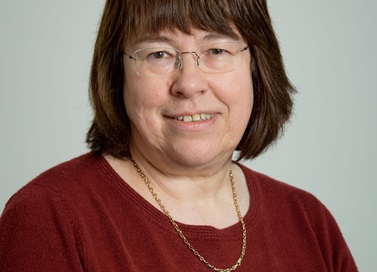Creating conditions to attract the next generation of psychiatrists
24 September, 2018
As I move through my second year as President the work has increased with my involvement in more areas.
Most of my time is now spent on College business although I still cling to my one day’s clinical work in Leeds.
One of the biggest things on most people’s agenda at the moment, both in Leeds and when I’m at the College, is workforce.
BYOC (Bring Your Own Caffeine)
I spend a lot of time in various meetings discussing this and how we can recruit and retain the staff that will enable us to provide the services that our patients deserve.
These meetings take place in nicely decorated rooms with comfortable chairs and air conditioning. Sometimes (if arranged at short notice) they are even in hotels. There is free tea and coffee, snacks and mineral water and wifi access.
On Mondays I do my clinic in Leeds. The building is well past its sell by date. I have to take my own coffee and milk. There is no food available even to purchase.
There is wifi but neither I or the patients can use it. There is no air conditioning. One room does not even have a window although you’ll be pleased to hear that after a year I have graduated out of that one.
The computers are on their last legs. This, as you will all know, is massively stressful, and far from efficient. I always arrive 30 minutes early to allow mine to warm up and to log on to all the sites I need but today it wouldn’t start at all.
Doing a clinic without access to a computer would be very difficult if not dangerous, even for someone like me who remembers the days when we only had paper with nostalgic wistfulness. Luckily IT agreed with me that this was an emergency and were able to fix it.
“Little” things could make a big difference
As I go about the UK I hear the same from the psychiatrists I meet. What I have learnt to call “hygiene” factors are hugely important. These include parking, access to some personal space and the issues I have already mentioned.
If we could sort these out I’m convinced that retention rates would improve.
I am doing all I can to change things but please talk to your Trusts about this and emphasise the importance. Both staff and patients deserve it.
I’m aware as I write this I can sound as if I don’t enjoy my job, that’s not the case.
After all these years and despite the grotty surroundings and grumbling about IT failures, I haven’t lost my enthusiasm for psychiatry and happily encourage medical students to choose psychiatry with genuine enthusiasm.
I still find the work fascinating and even after over 30 years I meet new situations and every clinical day is interesting.
One of the things I love most about my work as a psychiatrist is the unique combination of the social, the psychological and the physical. Two very different experience illustrated that recently.
Inspirational
My first trip was to Northampton for the official opening of the Centre for Neuromodulation. This Trust has just been rated as Outstanding by the CQC and you can see why.
From the CEO and the Medical Director downwards the staff are exceptionally warm, enthusiastic and welcoming. I met patients whose lives have been changed by rTMS and was even able to try a little treatment myself…
As part of the College’s interest in social prescribing I visited Fieldhead hospital in Wakefield, near home for me. They have been working in this area for years. I was shown around by an inspirational woman who became unwell as a child and was on a huge amount of medication.
She discovered a talent for painting and now sells her artwork, some of which is displayed in the hospital. She was gradually able to reduce and stop her medication and has remained well. Other patients have taken up gardening, music and sculpture.
It was really good to see this work supported at the highest level within the Trust, another example of leadership allowing development that benefit patients.
Our new Secretary of State has an interest in Social Prescribing and it’s something that the College will be exploring. As we do this we mustn’t forget the basics. Many of our patients live in poverty, not helped by the recent changes to the social security benefits system.
We are producing a guide for Mental Health Staff who are supporting their patients in applications for these benefits but meanwhile I recommend an excellent article in the magazine Asylum, Supporting Claimants: a practical guide by Jay Watts.
We may not be able to do all that she suggests but every little helps and there isn’t much point in prescribing medication for our patients if they can’t afford food or a roof over their heads.
Enjoy the last few days of summer and I hope to see some of you on my travels this autumn.
Professor Wendy Burn
President


